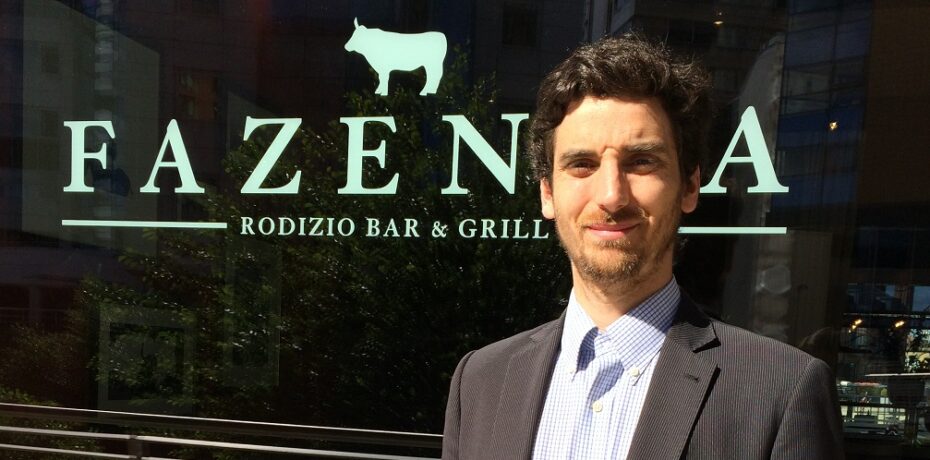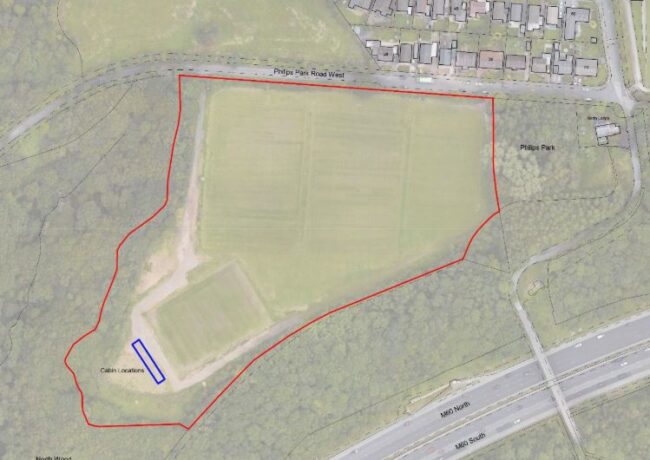Commentary
COMMENT | Leisure beyond the city centre
As the city centre expands outwards with no apparent slowdown in the number of bars and restaurant openings, it is natural for ambitious leisure companies to be looking outside central Manchester or Liverpool to open new venues, writes Tomas Maunier, director at Fazenda Group.
 In leisure sector terms, some may describe the city centre as too many outlets chasing too few customers. Along with the fast-expanding numbers of people living in the city, the dining-out scene in Manchester city centre is experiencing strong growth, with one recent report finding that there has been a 37% increase in the number of restaurants in the last five years.
In leisure sector terms, some may describe the city centre as too many outlets chasing too few customers. Along with the fast-expanding numbers of people living in the city, the dining-out scene in Manchester city centre is experiencing strong growth, with one recent report finding that there has been a 37% increase in the number of restaurants in the last five years.
But this has an effect on leases and other costs which makes opening a new eatery in Manchester city centre a very costly and high-risk investment.
With high prices and intense competition in the central core, it has been in the spirit of curiosity that I – an Argentinian, born in Brazil, who has made the North of England my home – has started to visit the outlying areas of Greater Manchester to view possible sites for a sixth Fazenda.
The group already consists of Manchester, Leeds, Liverpool, Edinburgh and soon Birmingham (with our younger brother restaurant Picanha in Chester). Plus, we operate the Catalan restaurant Tast. So we believe we know the way the city centre works in terms of footfall and demand.
But I must confess we know the other nine areas which make up Greater Manchester rather less well. We have heard that Altrincham, Didsbury and Hale are suburbs where a Fazenda or Picanha might work. But in Hale there have been some high-profile closures of Carluccio’s and Blackhouse, and Didsbury and Altrincham are already full to bursting with a good quality food offer.
So I have been taking a look at some of the outer suburbs of Greater Manchester and Liverpool for locations where bars and restaurants can open and thrive. What is apparent is that there is very little opportunity outside the centres for a mid-market brand like Fazenda.
In other major cities of the world there are often more buoyant business districts than simply the centre. London is a great example of a city with many lively districts humming with economic life. Of course, no other city in the UK could be like London. But in other European countries there are cities which have several dynamic districts well away from the centres.
I guess the truth is that Greater Manchester is not yet a mature economy when it comes to the leisure sector. It’s very positive that the town centres of Stockport, Bolton and Rochdale are all bringing forward exciting plans, with investors bringing homes and jobs back to these once thriving centres.
Often these plans involve re-modelling the centre to reflect the crippling loss of retail, and leisure is clearly a big part of that. One good example is the Redrock Centre in Stockport, which is reportedly trading excellently with food operators Pizza Express, Zizzi and others based around an independent cinema.
Perhaps a sign that the Greater Manchester economy will have reached maturity is when the outer suburbs will also be solid promising places to open a new venture for a group like ours.
Back to my travels around the towns of Greater Manchester. It would be unfair to single out individual town centres. They all have their challenges and it would seem the councils are taking action to re-model activity zones for the 21st century and attract investment.
As well as Stockport, I am encouraged to see regeneration schemes underway in Rochdale and Bolton. These plans seem well thought-out in terms of bringing the right mix of housing, office, other commercial and a more focussed retail offer together with leisure uses to match modern day trends and lifestyles.
But these will take time. As I travel around the country looking for new sites, I see the same problems afflicting town centres. I approach these towns full of optimism and the sense of possibility of adding a new outlet to our group. But I see High Streets suffering from the loss of independent shops and major chain retailers. A downward spiral starts and soon charity outlets and betting shops stand out among the vacant units. It appears wherever I go there is not the footfall or the spending power to supply the customers for our mid-market brand.
What are the answers to these issues? Are the council plans in the town centres going to solve the problems? Can we speed up positive change while we wait for regeneration plans to slowly improve the story?
I am really interested to know what people in property think about this challenge. I’m hosting a lunch on Monday 19 November in the private dining room at Fazenda, Manchester, to discuss the issues I’ve raised here with 14 people from the property sector. Please email events@placenorthwest.co.uk to register your interest in attending.





Interesting article Tomas.
I think the problem out in certain suburbs is ‘oversupply’ yet in other areas there is very little ‘supply’.
Take the affluent suburb of Worsley which has very little choice.. It’s ‘George’s’ owned by the former footballer Mr Ryan Giggs or very average pub grub from 2-3 national pub owning brands. I believe the area has room for at least another 3-4 quality dining venues .
By Anthony T